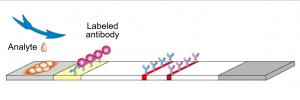Until now, Koreans have argued whether personal information disclosure is necessary or not, and if it is necessary for the public interest, the extent of how much information to disclose has been controversial. In Korea, even if someone is a suspect of a crime, publicity of the suspicion and revelation of personal information are not permitted. The context that is revealed in court can be disclosed to the public in a public trial. But after the serial murders by Kang Ho Soon, Korea enacted a law. On the ground of the law, the personal information of 21 brutal criminals, including that of the suspect in the “Ko Yoojung case”, has been disclosed. Similarly, there is another law that reveals the criminals who are convicted. After the court gives someone the guilty verdict, personal information about the criminals is uploaded onto the Internet for a certain period of time. This law is applied to sexual assault cases, and it is known as the “Sex Offender Alert.” It is necessary to understand the effects of these laws and perceive their effectiveness by analyzing a wide range of aspects.
1. The Disclosure System of Personal Information of the Brutal Criminals and Sex Offenders in Korea
To release the identities of criminals, there are four requirements that must be met. First, the means of the crime should be cruel and cause significant damage. Second, there is enough evidence to prove the suspicion. Third, the purpose of revealing the crime is only to serve public interest by guaranteeing the right to know and prevent recidivism. Fourth, the suspect is not an adolescent who is under 19 in the year of the crime. Moreover, this system should not be abused and should be carefully decided upon by considering the suspects’ rights.
The cases which have met these conditions got media attention and then outraged the public:
- The criminal who reignited the dispute about releasing personal information was Ko Yoojung. Even though investigations are still underway, her face was revealed to the public. She is alleged to have murdered her ex-husband and dismembered his body.
- On April 17, 2019, a man set fire to his apartment and stabbed people, particularly, children and the elderly, who were evacuated from the fire location. The suspect, Ahn Indeuk, killed five people and the means of the crime was heinous.
- Jo Doosoon’s personal information was revealed recently. He sexually assaulted an 8-year-old girl in 2008 and is awaiting release from prison in 2022. Many people are worrying about his release.
- In the murder case at a PC room in Gangseo-gu, Kim Seongsu stabbed the victim over 80 times. The way the criminal committed the crime was very brutal, so the public was terrified, shocked, and outraged. There were several CCTVs recording the act and witnesses who could prove his criminal act, so his identity could be released quickly.
2. Information Disclosure in Foreign Countries.
In the United States, the system is similar with Korea’s. For example, Megan’s Law is about the registration and notification of sexual offenders. The name, home address, workplace address, the car, the characteristics of the person’s appearance, and photos of the criminals are released to the public. Its implementation is slightly different from state to state, and it is common to release the information to the public despite the criminal being an adolescent. The US Supreme Court regards violent crimes as a public matter, so it takes strong measures.
The United Kingdom’s Sarah’s Law was enacted in 2000 to enhance the previous Sex Offenders Act 1997. Sarah’s Law releases the number of sexual offenders by location, whereas the USA reveals personal information. The police register the personal information of the criminals and the machinery of law manages the information and gives it to schools and public organizations based on certain conditions. However, it is restricted as to who can access the information.
In the case of France, information about brutal criminals is commonly made public. In 2006, a French couple living in Korea abandoned a newborn baby in a refrigerator in Banpo-dong. The case was not made public in Korea, but it was in France.
Japan reveals criminals’ information through the media right away. No matter how brutal the crime is, it is made public. Other countries try to guarantee the public’s right to know by legislation about the disclosure of personal information.
3. A Double- edged Sword, the Disclosure System
The notorious criminal, Jo Doosoon, is not registered in the “Sexual Offender Alert” as the law itself did not exist when he committed his crime. As retroactive measures are not applied to the criminals who committed the crime before passage of the law, the preventive effect is not that significant. In the USA, related laws were not effective and are not applied evenly throughout the country. Rather, the stigma through the public disclosure has failed to rehabilitate the criminals, so that the reconviction rates have become higher than before. Moreover, except for rapists, experts believe that criminals can be reformed, so supervision can be a good way to prevent reconviction. According to the constitutional law of Korea, the disclosure of personal information is illegal when the criminals have already received punishment or they committed the crime before the legislation was passed.
In the cases of other countries, they release the information of the child sex offenders in order to prevent them from repeating the crime. They regard criminals as unreformable, but it is hard to find that the law is expanded on common criminals. Moreover, in Korea, people continue to be “punished” even after they have paid for their crime. If the family member’s information is released, it is the same as a social death sentence for the criminals. In fact, some people have committed suicide because of public shame. In short, the information revelation cannot be the key to solve this problem.
On the contrary, many people think that it is important to guarantee the right to know rather than protect the brutal criminals’ rights. The victims’ rights are more important that the criminals’, and it is questionable whether it is justifiable to protect criminals who trample others’ rights. In addition, people regard the disclosure as the only way to express their anger and indirectly punish them. People expect to protect children from the crime by making the criminals feel shame for the punitive effect. On the top of that, it is rare to prohibit the disclosure of the criminals’ actions around the world, and in the case of developed countries such as the USA and Germany, there are no regulations on the disclosure of the personal information of criminals.
Regarding the decision-making process in the disclosure of the information, Korea has an official organization that consists of seven members, and four of them are external specialists. The problem is that the decision is dependent on the experts. Plus, as the four previously mentioned requirements are ambiguous, the decision can be different even if the cases are similar. Even if the disclosure is decided, the suspects’ faces are not always made public. The police can prevent them from concealing their faces with their clothes and hat, but there is no solution if they use their hair and hands. From the perspective of the police, restricting the concealment of suspects can be seen as a human rights abuse, so it is beyond their power. Meanwhile, because of the imperfect system, the standard for deciding when to release the information is inconsistent.
In Korea, many people take a strong position on the disclosure of personal information because brutal crimes have increased. The public voices its thoughts through the Internet, SNS, and so on. However, many legal experts express concerns because the release of information has negative aspects. To create a better system, Korea needs to analyze other countries’ systems, and consider their social value. By doing so, we can clarify the acceptable level of the disclosure and the range of the disclosure of the personal information of criminals.
Han Suji suzyhan96@gmail.com
<저작권자 © 홍익대영자신문사, 무단 전재 및 재배포 금지>





